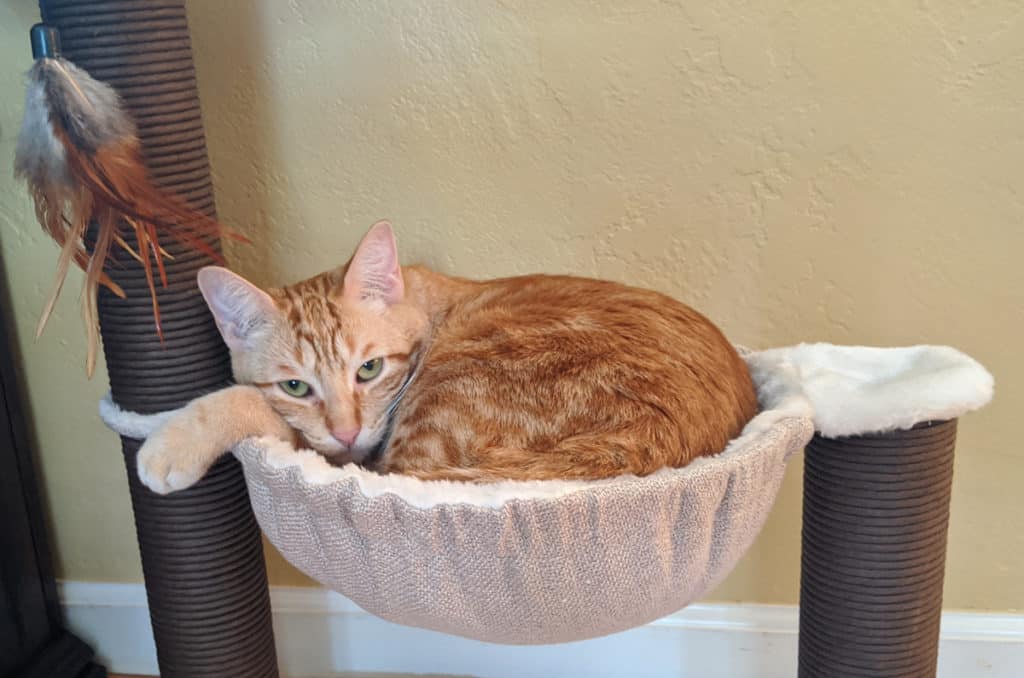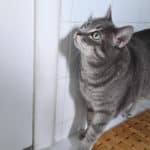Cats have an unfair reputation of being aloof. People often attribute a cat’s independent nature as meaning that they don’t require any attention.
Cats are social animals and they do enjoy attention and interaction with their caregivers.
While cats may not rely on their caregivers for the same level of care and attention as dogs, they still need social interaction, mental and physical stimulation, and basic care such as food, water, and a clean litter box.
Cats can also form strong bonds with their caregivers and can become very attached to their owners.
Cats also need daily stimulation in the form of play time and attention from their caregivers. When cats are bored, they may exhibit restless or anxious behavior, which can lead to aggression.
An under stimulated cat will often start to act out or they may become more withdrawn.
What are signs that your cat is bored?
Lack of activity or playfulness
Cats are naturally curious and playful animals, so if your cat seems to have lost interest in playing or exploring, they may be bored.
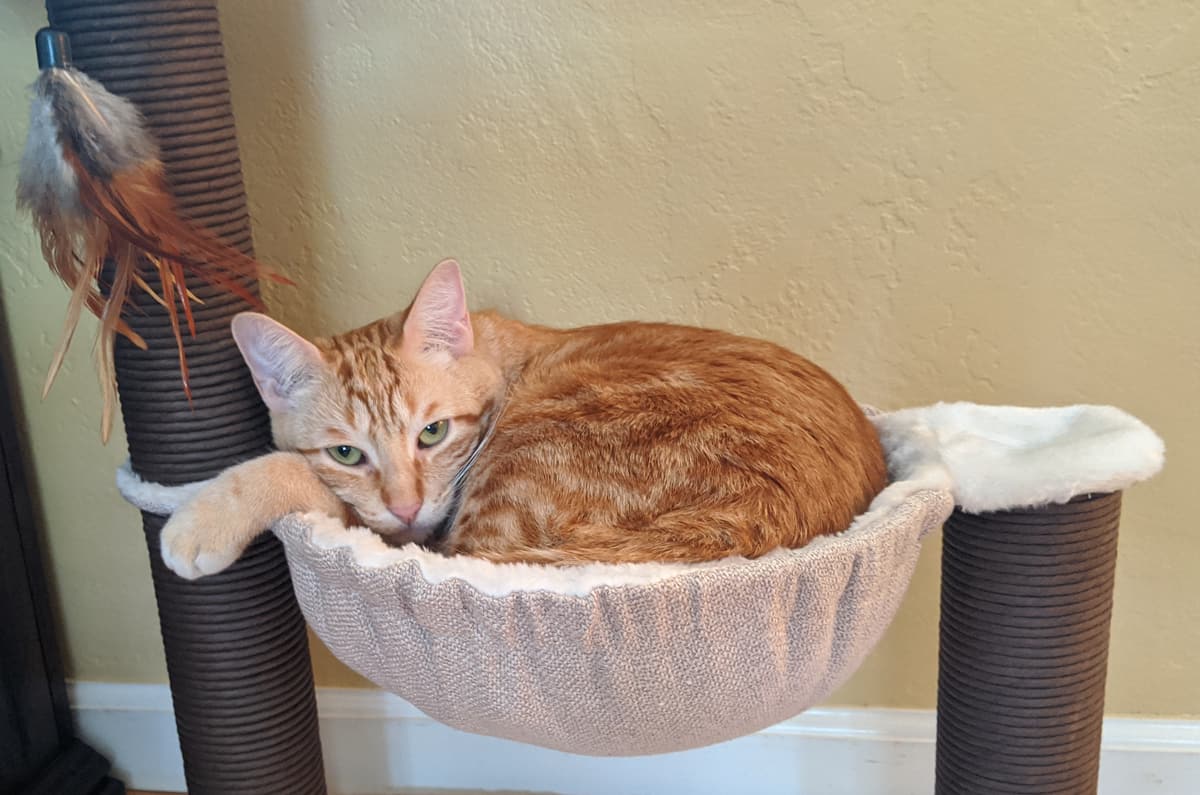
Play is an important part of a cat’s life and helps to keep them physically and mentally stimulated. When cats are bored, they may lose interest in playing with toys or engaging in other activities.
In addition to providing physical and mental stimulation, play can also help cats to practice important predatory behaviors and can improve their overall physical and mental well-being.
Excessive meowing or vocalization
Cats may meow more than usual when they’re bored, especially if they’re seeking attention or trying to get you to play with them.
Destructive behavior
Cats may scratch furniture, chew on objects, or engage in other destructive behaviors when they’re bored and don’t have enough stimulation.
Increased restless or anxious behavior
This can often lead to aggression towards you or towards other pets in the household. You may notice your cat fighting more with other cats in the house.
Changes in appetite or weight
If a cat is not getting enough play and stimulation, they may become inactive and may even gain weight, which can lead to other health problems.
Cats may lose interest in food if they’re not getting enough physical activity and stimulation.
Increased sleep
Cats may sleep more than usual if they’re bored and don’t have enough to do.
What to do if your cat is bored
If you notice that your cat is not playing as much as usual, it’s a good idea to try to provide more stimulation and activities to keep them happy and healthy.
This could include playing with toys, providing scratching posts or other objects for them to interact with, and giving them opportunities to explore and exercise.
Here are a few ways you can stimulate your cat and help prevent boredom:
Provide toys
Cats love to play, so providing a variety of toys can help keep them entertained. This could include wand toys, laser pointers, balls, and scratching posts.
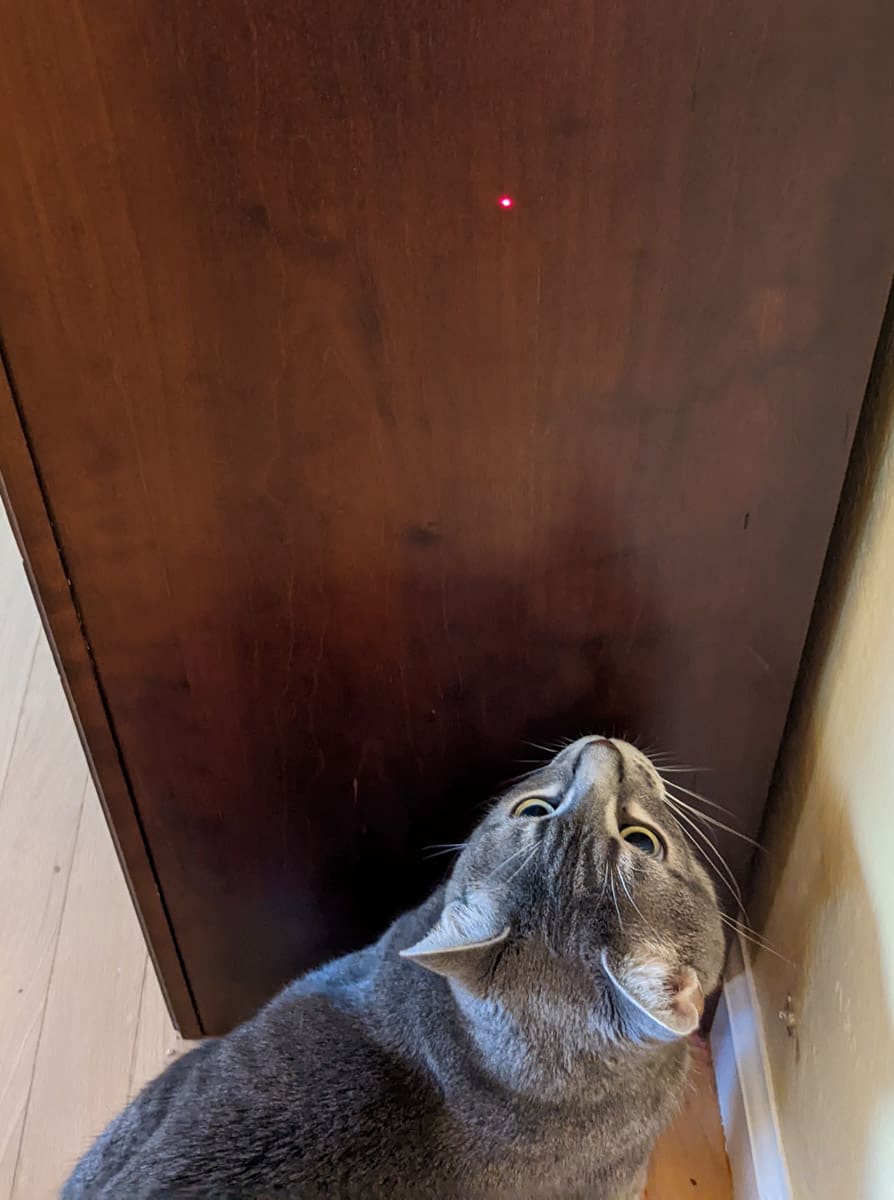
Engage in interactive play
Spend time playing with your cat using toys or simply using your hands. This can help stimulate their predatory instincts and provide physical and mental stimulation.
Set up an indoor playground
Provide your cat with a space where they can climb, jump, and explore. This could include a cat tree or shelving unit, or even just a cardboard box or tunnel.
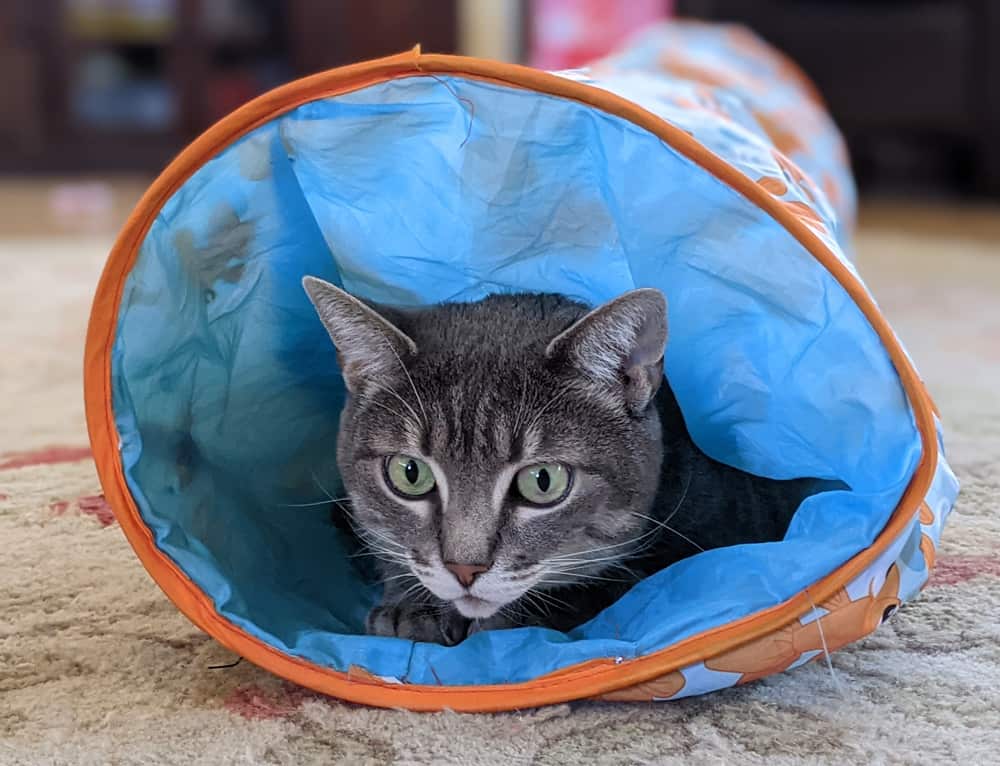
Provide plenty of hiding places
Cats love to hide and explore, so providing plenty of hiding places can help keep them entertained. This could include boxes, paper bags, or even just a blanket draped over a chair.
Set up a window perch
Cats love to watch birds and other outdoor activity, so providing a window perch can help keep them entertained.
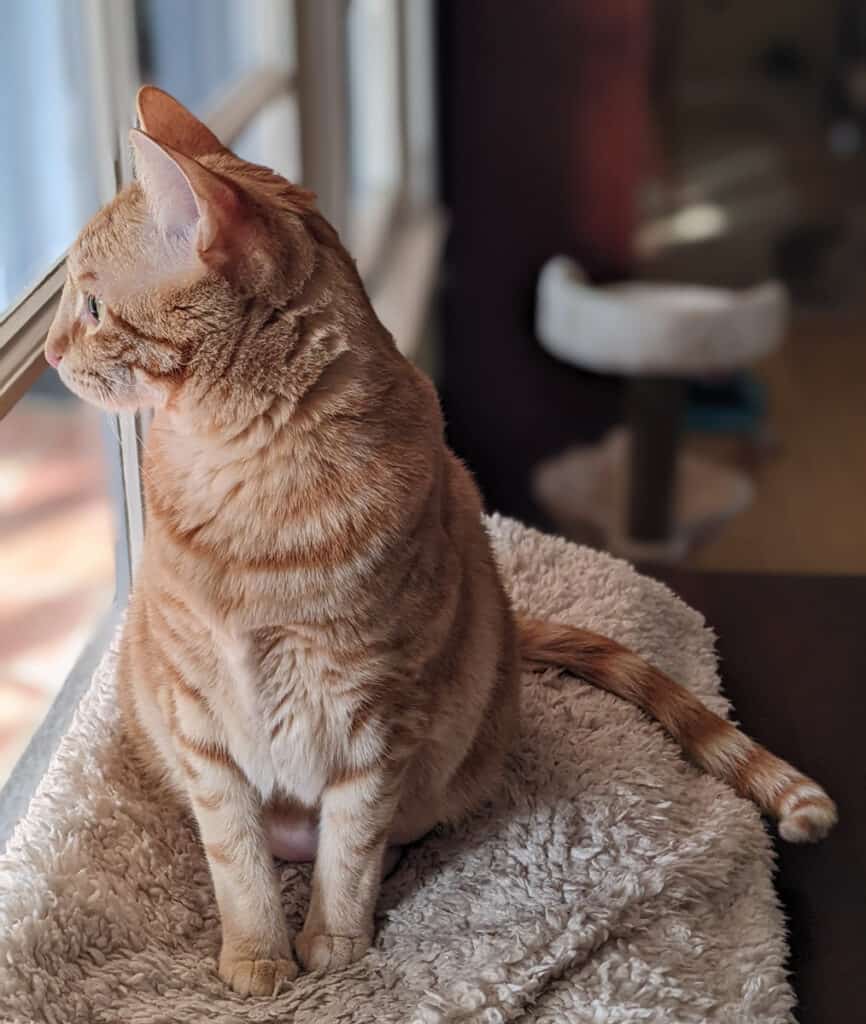
Provide puzzle toys
Cat puzzle toys can provide mental stimulation for your cat and can be especially helpful for indoor cats.
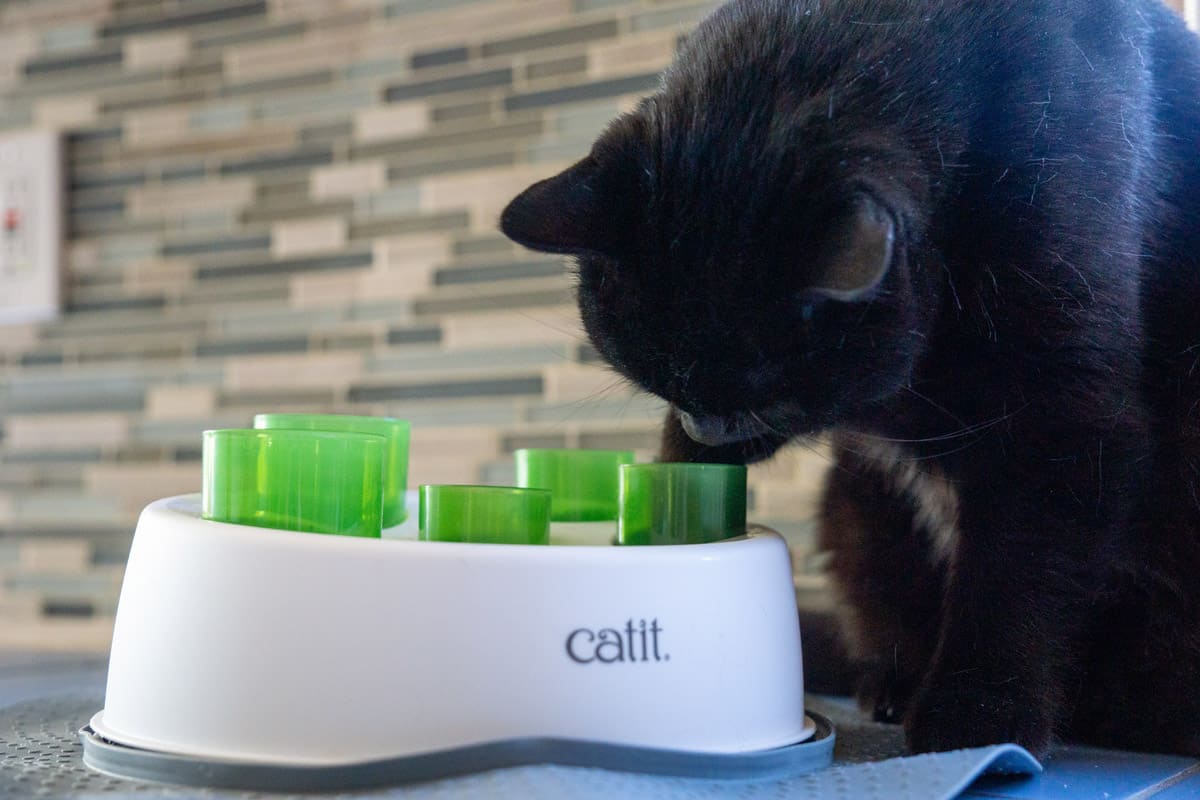
By providing a variety of stimulation and activities, you can help keep your cat happy and healthy. It’s also a good idea to pay attention to your cat’s individual needs and preferences and to provide activities and stimulation that they enjoy.

